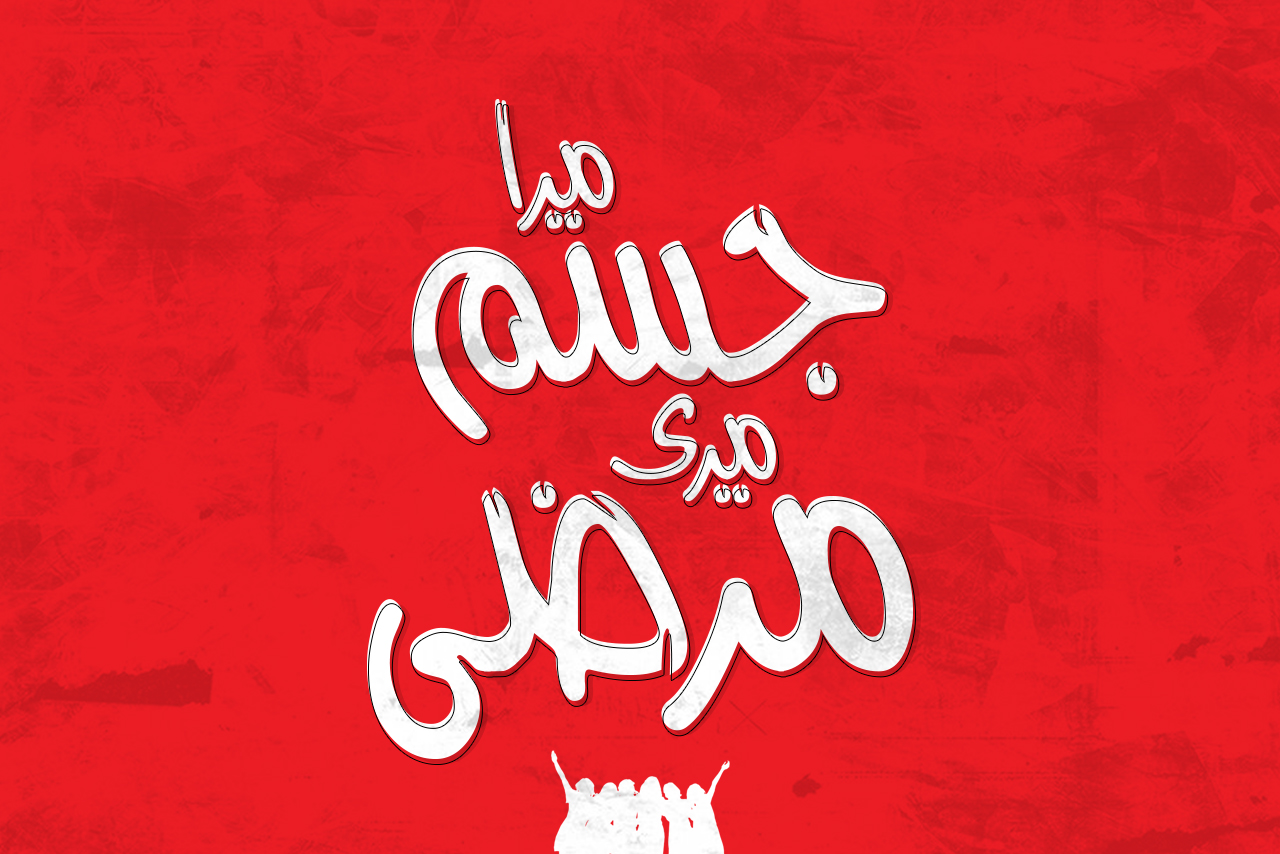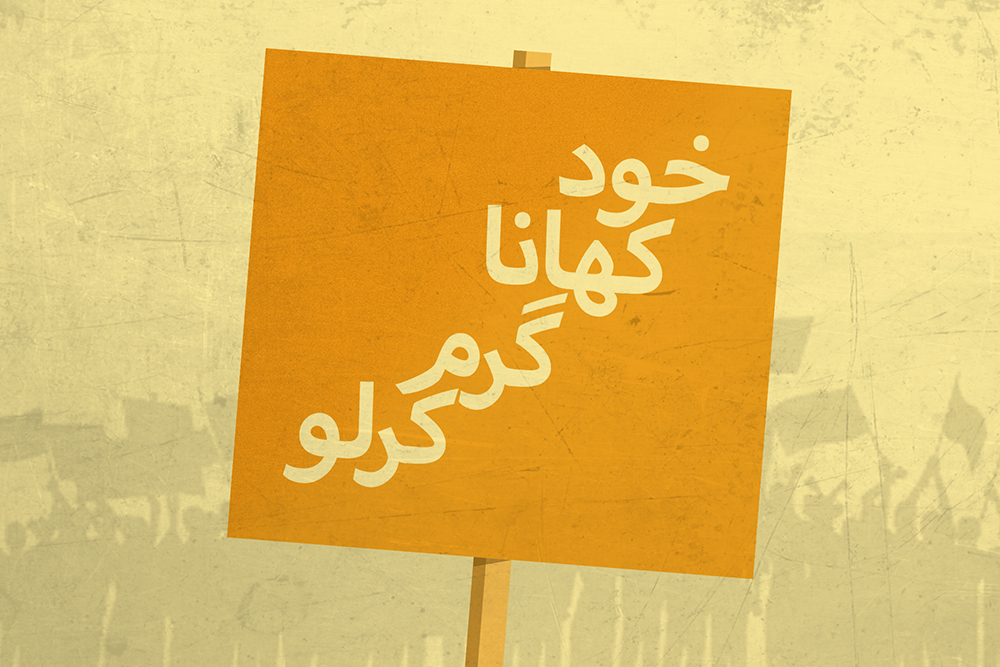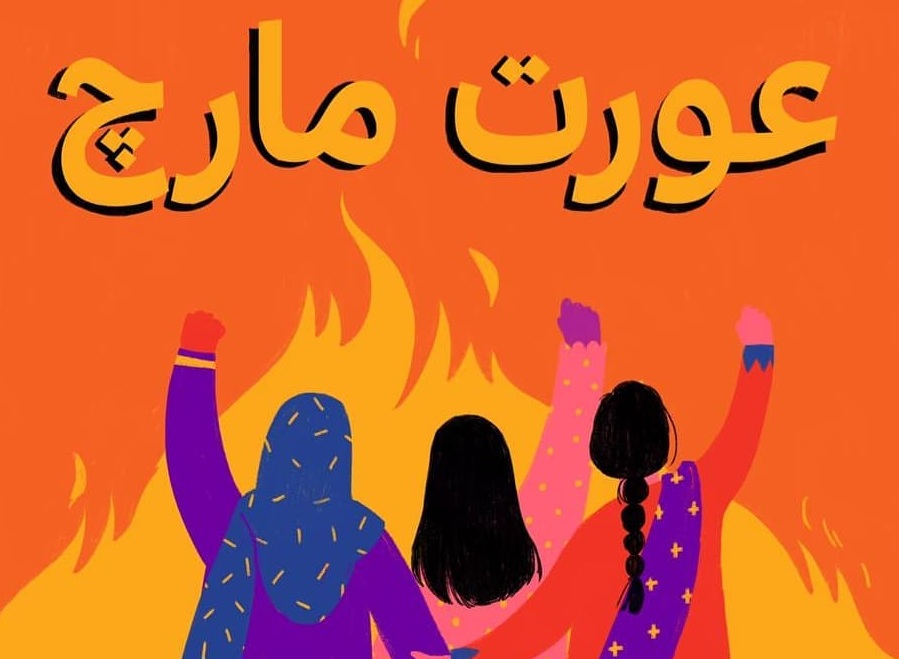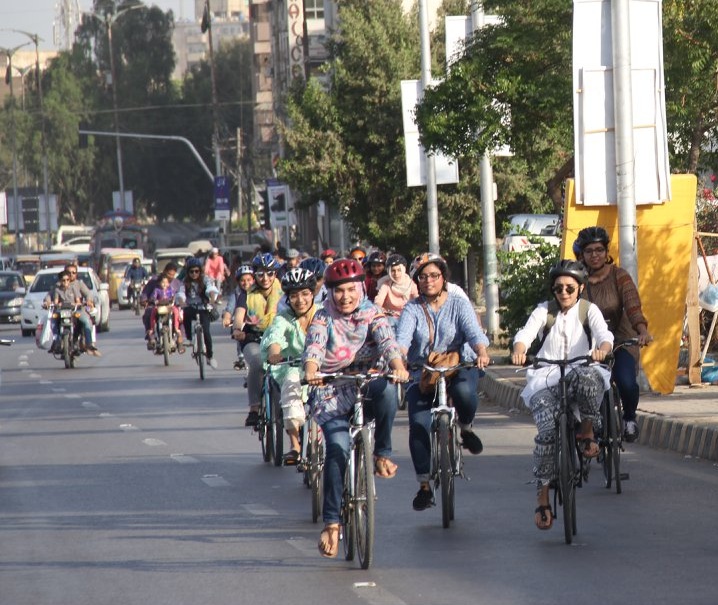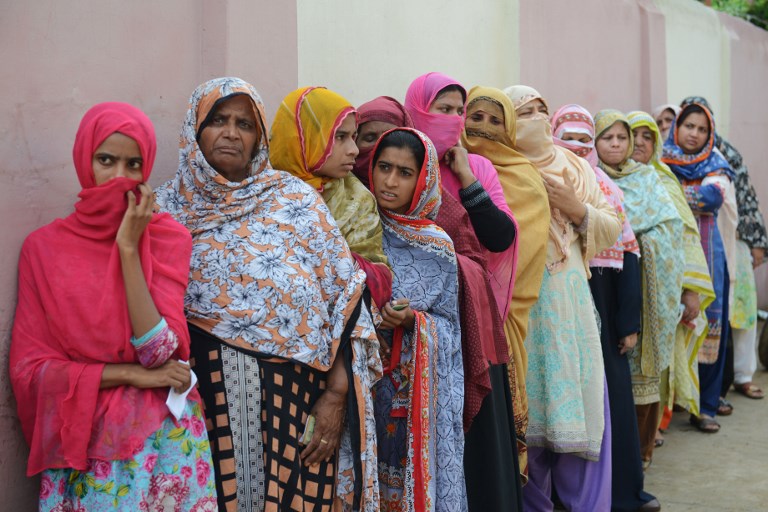KARACHI: ‘Mera Jism Meri Marzi‘ (My body, my choice) was already scrutinised when it first made an appearance on a placard at Aurat March last year, but the slogan was given a new life when writer Khalilur Rehman went on a rampage and attacked Marvi Sirmed for saying it on national television this week.
So, what does the slogan that made Qamar say, “Jab me yeh sunta hoon toh mera kaleja hilta hai (roughly translated to: I was shook)” mean?
Several people have spoken up about what they think the slogan means. Feminists, activists and celebrities have spoken in its favour, highlighting how it’s about consent, forced childbirth and rape among other things; meanwhile people like Ahmed Ali Butt have called it ‘legalisation of prostitution’ and Jamiat Ulema-e-Islam-Fazl Chief Maulana Fazlur Rehman went a step ahead calling it ‘indecent’ and the ever reliable ‘a zionist conspiracy.’
Read: This is how you shut down a misogynist
Since the slogan is about women and their bodies, Cutacut reached out to women to get their view on what the slogan means to them:
1. Farieha Aziz, journalist and activist:
“It is incomprehensible, the backlash towards ‘Mera Jism Meri Marzi‘. A woman’s existence and worth is reduced to her body and its utility to another. Others should decide who has access to it and how? If her “jism” should not be her “marzi” whose should it be? A rapist’s? A molester’s? A harasser’s? An abuser’s? How is something this basic not understood. Not to be reductive, the slogan is about bodily autonomy in every sense; however, when people ask for cultural relevance, how do ‘honour’ killings, forced marriages, rape, harassment, acid attacks, domestic violence not cross their mind? The slogan speaks back to those who seek to exercise control over life choices which include those that pertain to a woman’s body. Also after forced marriage, forced pregnancies to birth male children.”
2. Aima Khosa, journalist:
“It is the slogan of our times that asserts the revolutionary idea that women, too, are born free and have the right to command their destinies. ‘Mera Jism, Meri Marzi’ pushes back against centuries old patriarchal ideas that have prevented women from achieving their full potential as human beings and as equal members of society. For me, this slogan is a call to rebellion: no, our bodies are not sites for patriarchal, capitalist violence. We are not machines, to exist without feeling or thought.”
3. Aiman Rizvi, writer and activist:
“‘Mera Jism Meri Marzi’ is a rallying cry for all marginalised gender identities who find their bodies policed, exploited and violently erased. The chant is an acknowledgement of our right to our bodies – our right to mark them, clothe them, pleasure them, nurture them, and exist within them on our own terms. On a deeper level, it is a demand for us to have ownership over how we navigate and understand our intimate geographies: our desires, our biologies, and our gendered existences.”
4. Sara Humayun, academic:
“To me, the slogan is about sexual autonomy and the right to choose who women want to be with.”
“What I make of ‘Mera Jism Meri Marzi’ is: One can wear whatever they like to as long as they are comfortable, irrespective of how others look at it. Also, one has the right to walk and talk the way they want!”
Read: The ‘dick pics’ sign at Aurat march was talking about an important issue: rape culture
6. Ayesha Tariq, artist and comedian:
“Have you ever had conversations with the women around you about sexual abuse, unwanted touch, harassment? Almost every one around us has a story to share. Sometimes you might even hear them invalidate their own experience by saying something like, ‘I don’t think it was exactly harassment but somebody did touch me inappropriately…’. Why do women not speak up? Because when they do they are met with accusations that hold them, the victims, accountable. Blaming their behaviour, attire, character what not. Women are held responsible for a crime that was committed against them. Their agency over their body is taken away. Similarly, there are many instances of child abuse, not just by complete strangers but mostly by people close to home. At a tender age, again the child’s agency over their body is taken away. How does the power scale get so tipped that a man feels he can conquer other beings? Where is the love and equality?
Men are not wild animals that surrender to their instincts, we need to stop treating them as such, and hold them accountable as beings that have thinking capacity and the ability to control their instincts. Our limits for our bodies and the choices for our clothes are dictated by men. Because they can’t control themselves? I love to dance and sing, and I love performing. I have to keep altering myself and keep myself within limits so I don’t piss society off or disturb their aesthetics. Enough of that.”

